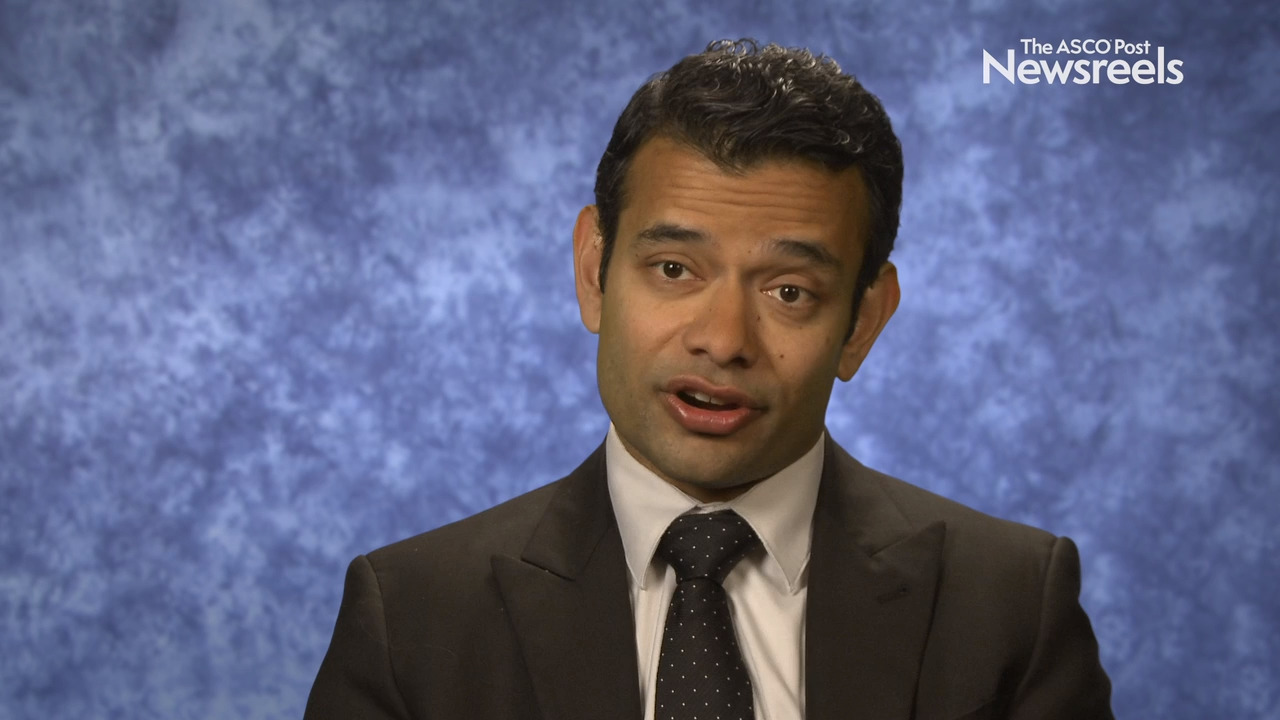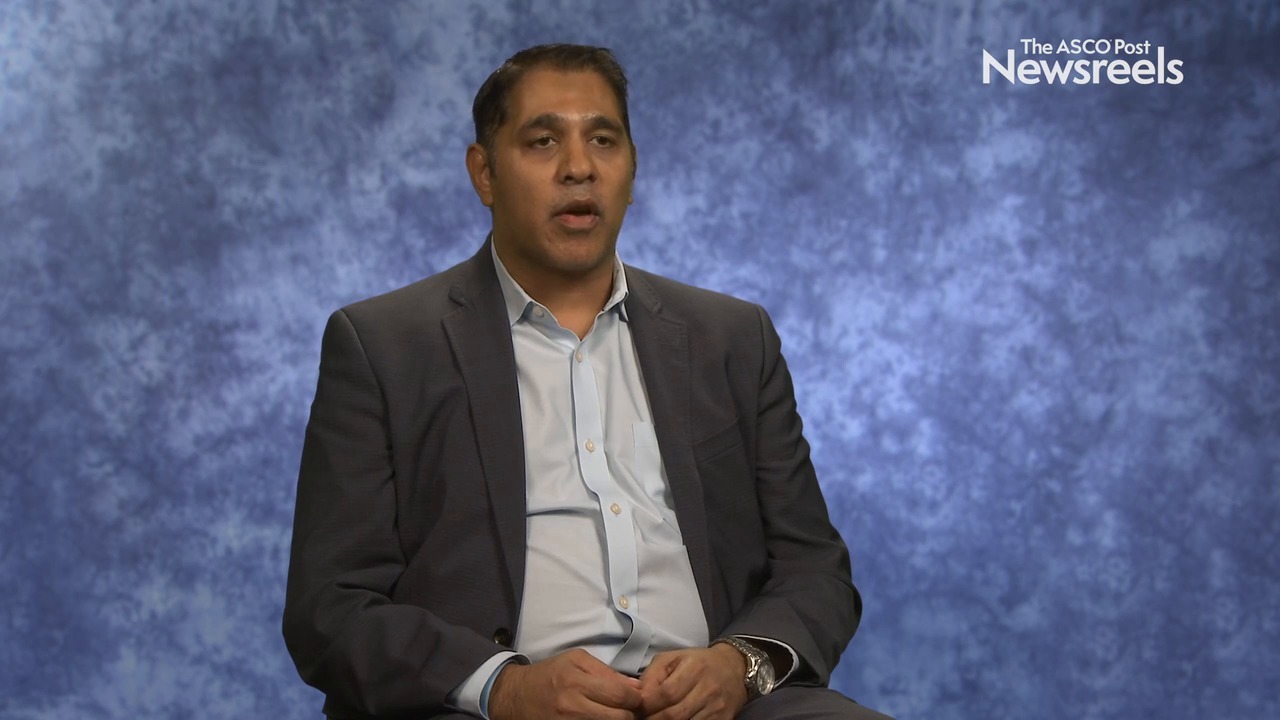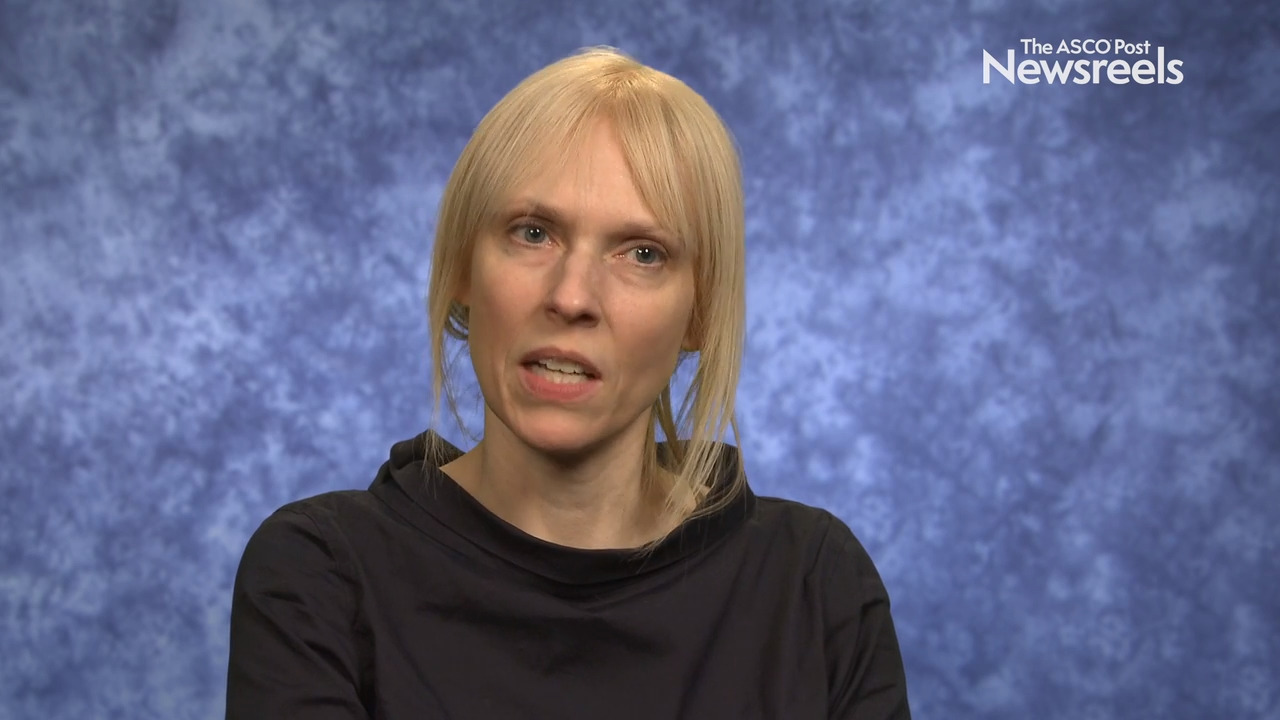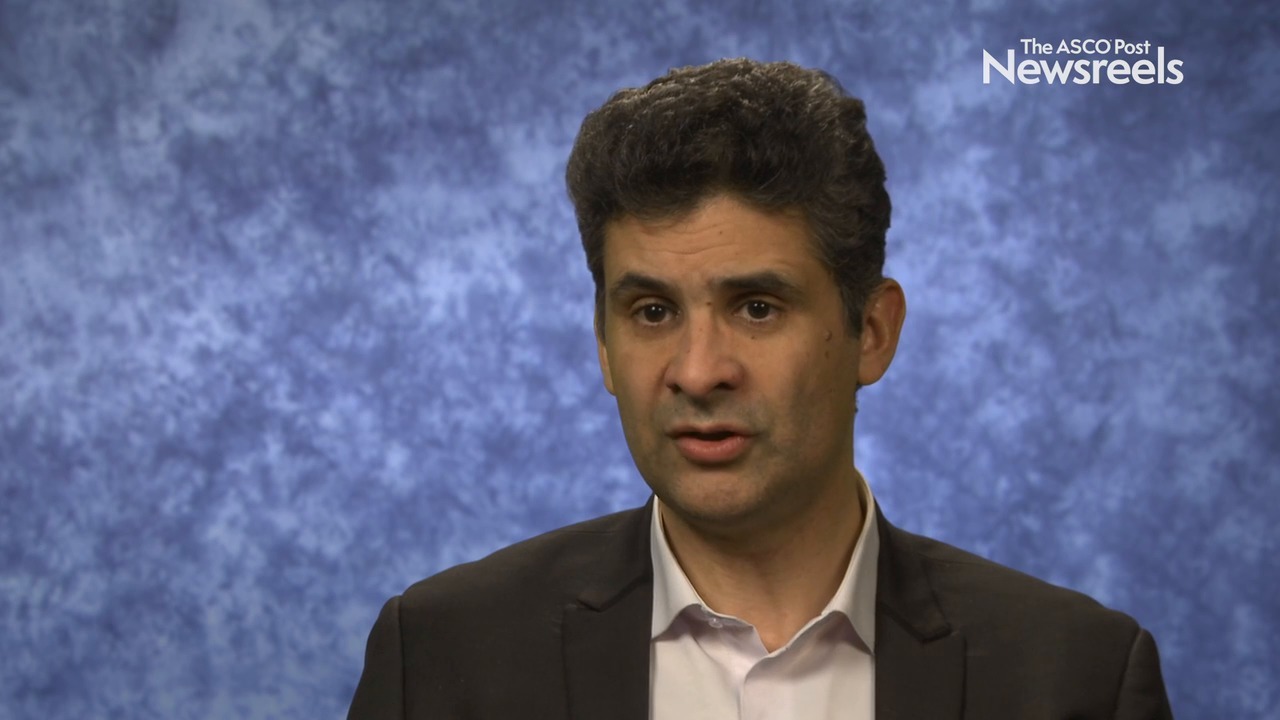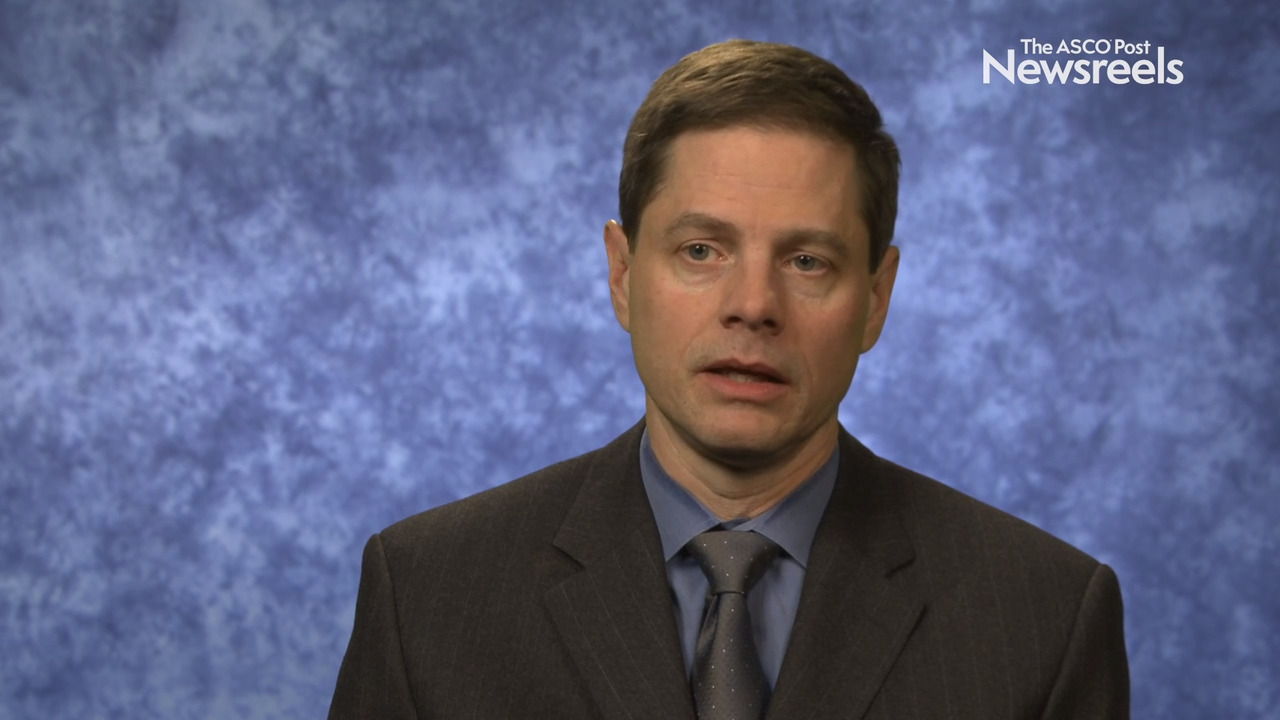Related Videos
Sumanta K. Pal, MD, on Clinical Cancer Advances: The 14th Annual Report
Sumanta K. Pal, MD, of City of Hope, who served as a Co-Executive Editor of the 2019 publication Clinical Cancer Advances, discusses progress made during the past year in research and policy. The report was compiled with a team of experts in oncology subspecialties, cancer prevention, quality care, health disparities, and tumor biology.
Sumit K. Subudhi, MD, PhD, on Prostate Cancer: Results From the CheckMate 650 Trial on Nivolumab and Ipilimumab
Sumit K. Subudhi, MD, PhD, of The University of Texas MD Anderson Cancer Center, discusses the initial results from a phase II study of nivolumab plus ipilimumab in the treatment of metastatic castration-resistant prostate cancer (Abstract 142).
Silke Gillessen, MD, on Prostate Cancer: Results From the REDUSE Trial on Denosumab
Karim Fizazi, MD, PhD, on Prostate Cancer: Results From the ARAMIS Trial on Darolutamide
Brian I. Rini, MD, on Renal Cell Carcinoma: Results From the TIVO-3 Trial on Tivozanib vs Sorafenib
Brian I. Rini, MD, of the Cleveland Clinic Taussig Cancer Institute, discusses phase III findings on a comparison of tivozanib and sorafenib in patients with refractory advanced renal cell carcinoma (Abstract 541).
